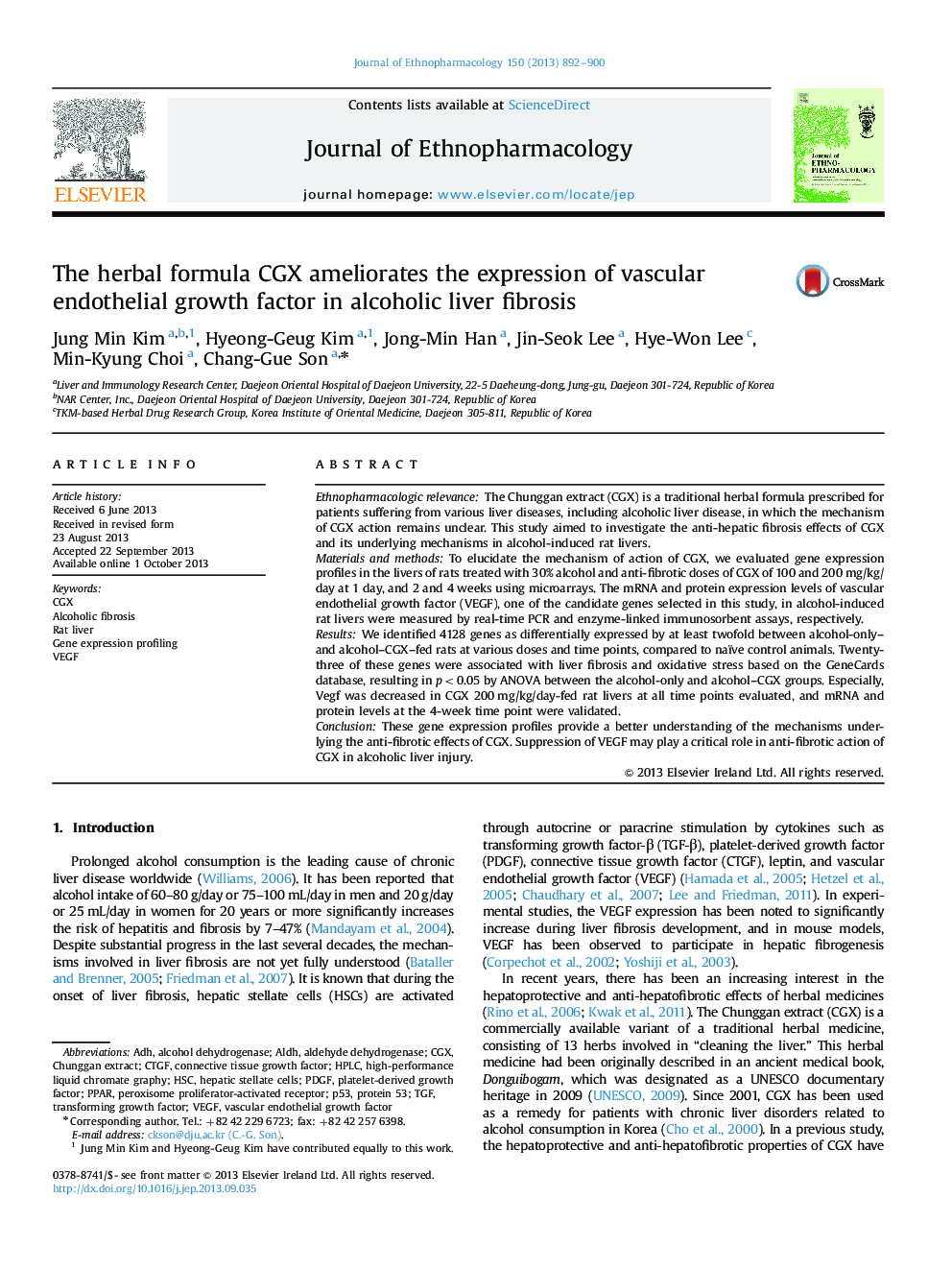| Article ID | Journal | Published Year | Pages | File Type |
|---|---|---|---|---|
| 2545328 | Journal of Ethnopharmacology | 2013 | 9 Pages |
Ethnopharmacologic relevanceThe Chunggan extract (CGX) is a traditional herbal formula prescribed for patients suffering from various liver diseases, including alcoholic liver disease, in which the mechanism of CGX action remains unclear. This study aimed to investigate the anti-hepatic fibrosis effects of CGX and its underlying mechanisms in alcohol-induced rat livers.Materials and methodsTo elucidate the mechanism of action of CGX, we evaluated gene expression profiles in the livers of rats treated with 30% alcohol and anti-fibrotic doses of CGX of 100 and 200 mg/kg/day at 1 day, and 2 and 4 weeks using microarrays. The mRNA and protein expression levels of vascular endothelial growth factor (VEGF), one of the candidate genes selected in this study, in alcohol-induced rat livers were measured by real-time PCR and enzyme-linked immunosorbent assays, respectively.ResultsWe identified 4128 genes as differentially expressed by at least twofold between alcohol-only– and alcohol–CGX–fed rats at various doses and time points, compared to naïve control animals. Twenty-three of these genes were associated with liver fibrosis and oxidative stress based on the GeneCards database, resulting in p<0.05 by ANOVA between the alcohol-only and alcohol–CGX groups. Especially, Vegf was decreased in CGX 200 mg/kg/day-fed rat livers at all time points evaluated, and mRNA and protein levels at the 4-week time point were validated.ConclusionThese gene expression profiles provide a better understanding of the mechanisms underlying the anti-fibrotic effects of CGX. Suppression of VEGF may play a critical role in anti-fibrotic action of CGX in alcoholic liver injury.
Graphical abstractFigure optionsDownload full-size imageDownload high-quality image (256 K)Download as PowerPoint slide
